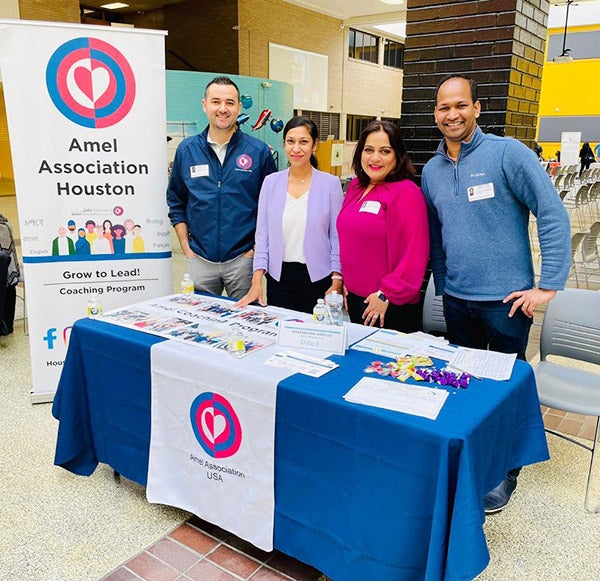Assaad Mohanna ’21 is using lessons from childhood and his experience at Rice to reimagine the future workforce of Houston.
Mohanna learned the importance of helping others from his father, Kamel Mohanna, who was a pediatrician when war broke out in Lebanon in 1975. His father knew medical help would be needed in the area, and three years later, at the peak of humanitarian need, Mohanna took action by founding Amel Association International to provide emergency services and basic needs for refugees and asylum seekers.
Over time, Amel Association International became one of the largest NGOs in Lebanon, with 28 medical centers, six mobile medical units, two mobile education units, and more than 1,400 workers and volunteers.

When Assaad was 11, he started helping his dad and other volunteers by working with families and playing with the children who had left their homes. Assaad went on to pursue a career in the oil and gas industry, and, after following work to Dubai and Saudi Arabia, he came to Houston, used the lessons he learned from his father and established the Houston Chapter of Amel Association International.
The new chapter served as the impetus for a capstone project for Assaad and his fellow classmates in the Professional MBA program at the Jones Graduate School of Business. Amel Houston sought to support the mental and physical health of refugees, asylum seekers and more, but the group also saw a gap in the services needed in the American city. Amel Houston’s unique offering would be leadership coaching to underserved high schoolers — the very people who would go on to build the fabric and future of Houston.
From Rice, Assaad learned the importance of leadership coaching. He and his team knew from their experience with the CoachRICE program through the Doerr Institute for New Leaders that mentorship may be familiar to high schoolers, but leadership coaching is different because it’s proactive instead of reactive. Rather than merely advising students, coaches work with students to address areas of their lives or work that are hindering their growth and potential.
The Amel Houston team knew that they had the opportunity to assist not only high schoolers, but their peers as well. Rice students participating in CoachRICE earned 60 hours of training time but needed 100 additional coaching hours to be accredited by the International Coaching Federation as a certified coach.
It was a win-win situation. Leadership coaching through Amel Houston would help high schoolers in economically challenged communities realize bigger dreams in the U.S., such as college or a career in business, all while giving CoachRICE participants the hours they needed to realize their own dreams.
Amel Houston’s work is led by three principles. First, support local communities by empowering underserved communities and giving them equal opportunities to grow. Second, step up diversity equity and inclusion efforts in companies by widening the talent pool in Houston. And third, make an impact on the future workforce and on the city.
— Maureen “Mo” Harmon
Editor in Chief
Rice Business Publications

